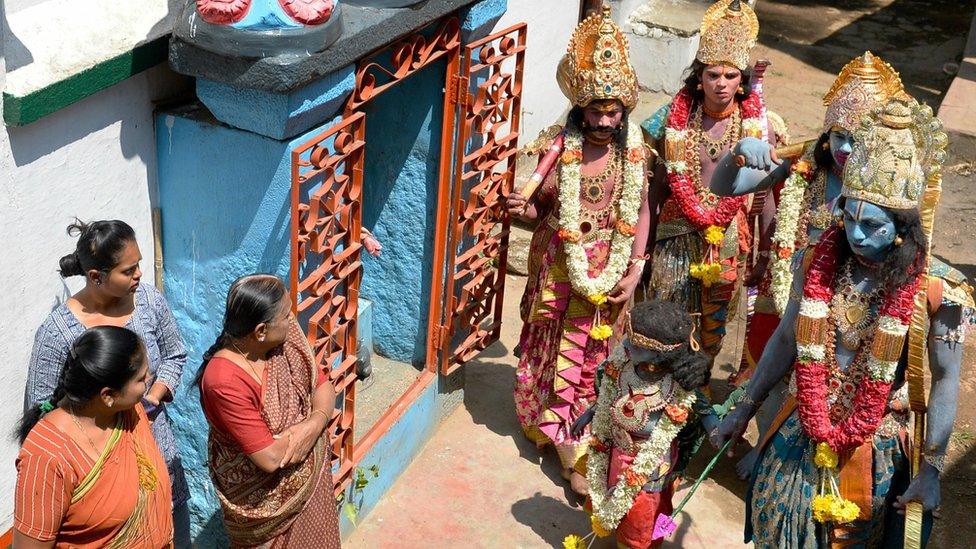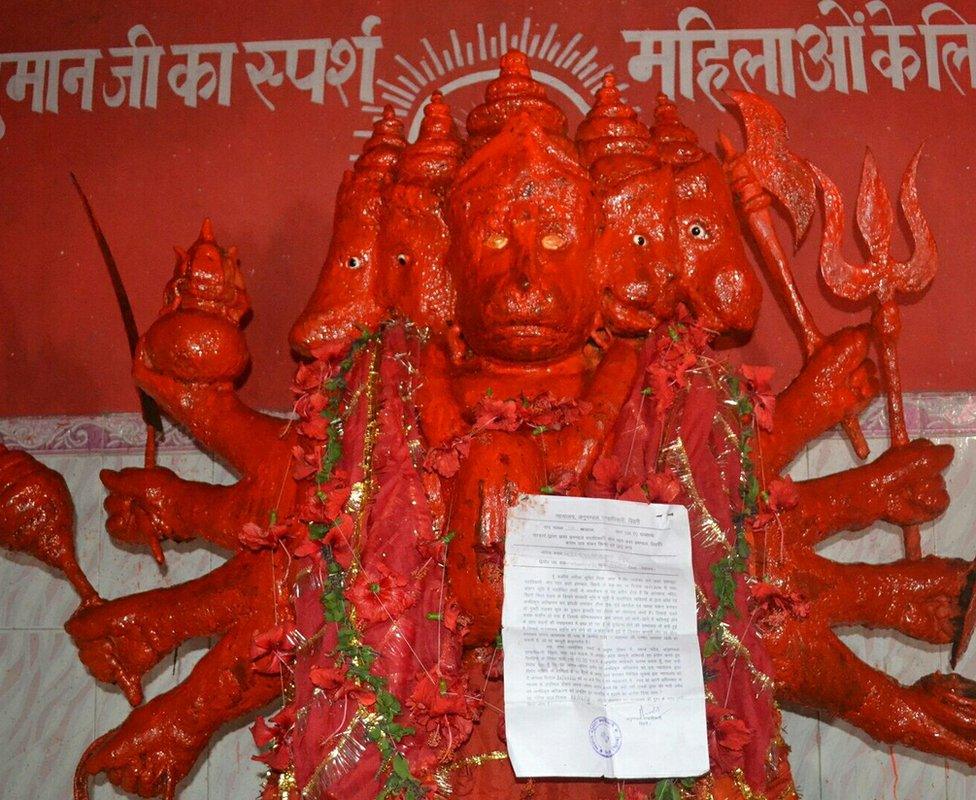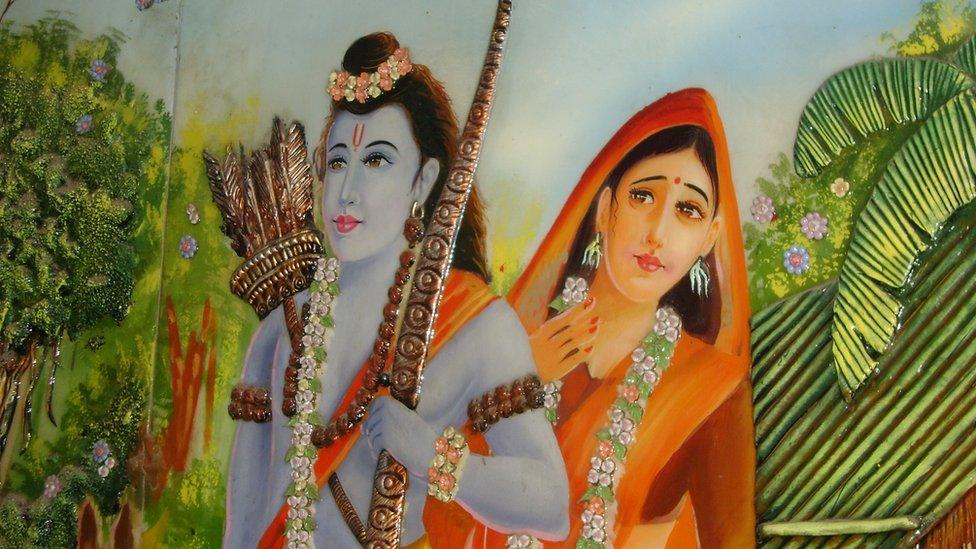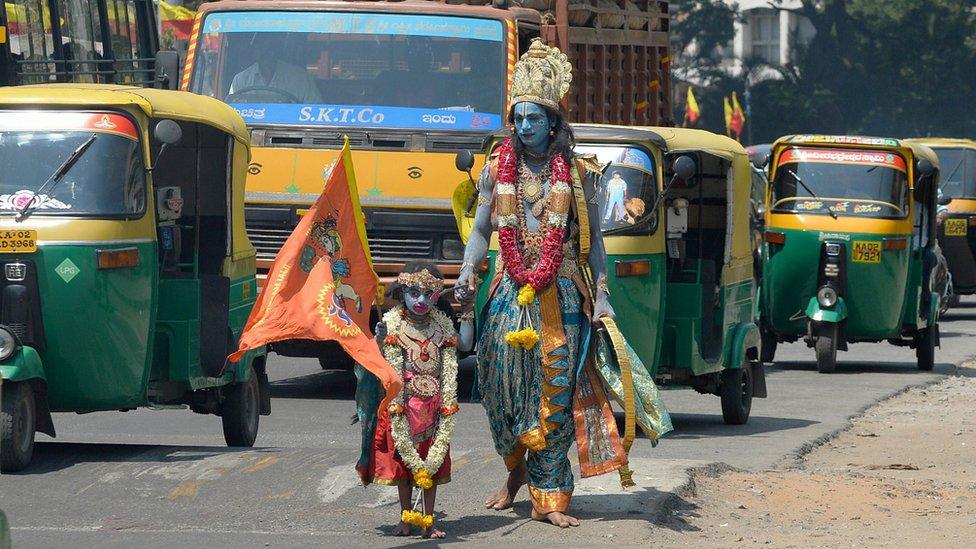When gods were hauled into Indian courts
- Published

A few years ago, an American senator took God to court, seeking a permanent injunction against "his harmful activities" such as "death, destruction and terrorisation".
A judge threw out the case, saying that legal papers could not be served, since God did not have a proper address, external.
In India, many devout Hindus have very intimate relationships with their gods and goddesses and, keeping that in mind, the Indian judicial system regards deities as legal beings.
This means that there have also been instances where they have been hauled into court.
The BBC's Geeta Pandey in Delhi lists some of the cases where deities have come into contact with man-made laws.

A land-grabber?

Earlier this month, a court in the northern state of Bihar served a summons on Hanuman, external, the monkey god, for "encroaching on government land".
The move came after a government department lodged a complaint in a magistrate's court against a roadside Hanuman temple, saying it obstructed traffic.
Officials who went to serve the summons stuck the papers on the Hanuman idol.
Red-faced government officials later said it had been a "clerical error", and the papers were meant for the "temple management and not the god". They then removed the summons from the face of Hanuman, who is often depicted with a red face.

A misogynist?

A lawyer recently took one of Hinduism's most popular gods, Ram, to court for being "unjust to his wife Sita".
Chandan Kumar Singh identifies as a practising Hindu, and says that although he worships Ram like millions of people in India and around the world, he cannot ignore the fact that Ram mistreated Sita.
The magistrate threw out his case, saying it wasn't practical, and Mr Singh's colleagues have also accused him of "seeking publicity". One of them has sued him for defamation.
However, Mr Singh remains unfazed - he told the BBC that he would file an appeal "because I really believe that Indians have to acknowledge that Ram mistreated Sita".

Not the rightful owners?

In December 2007, Ram and Hanuman were summonsed to a court to help resolve a property dispute.
On orders from the judge in the eastern state of Jharkhand, advertisements were placed in newspapers, external asking the gods to "appear before the court personally".
"You failed to appear in court despite notices sent by a messenger and later through registered post. You are hereby directed to appear before the court personally," the notice stated.
Reports said two earlier summons sent to the deities were returned because of "incomplete" address.
The dispute was over the ownership of a 1.4-acre plot in Dhanbad city, in Jharkhand, where two temples of Ram and his lieutenant Hanuman stood.
Local people said the land belonged to the gods, but the temple priest insisted the land was his.

Can't deal in shares

Gods cannot play the stock market, the high court in Mumbai ruled in 2010, external.
The judges rejected a petition from a religious trust which wanted to open trading accounts in the names of five gods, including Ganesha, the elephant-headed god.
The trust, owned by the former royal family of Sangli in the western state of Maharashtra of which Mumbai is the capital, said the deities had savings bank accounts and income tax cards, but the judges were unmoved.
Trading in shares on the stock market requires certain skills and expertise and the judges said that to expect this from deities would not be proper, adding that "gods and goddesses were meant to be worshipped, and not dragged into commercial activities like share trading".
- Published19 October 2011